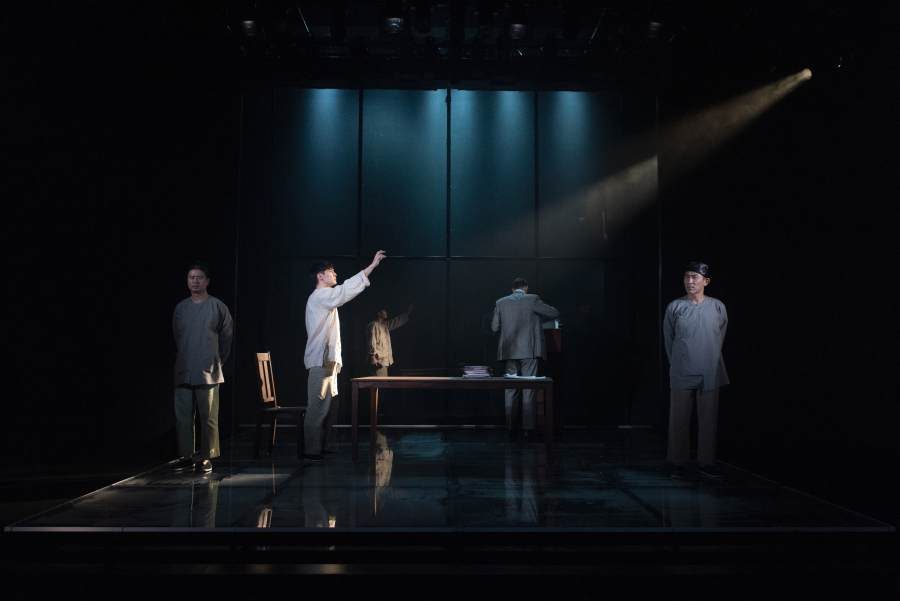

Between 1910 and 1940, San Francisco's Angel Island processed somewhere around 250,000 Chinese immigrants. Often detained in a prison-like environment for weeks, months, or even years, Chinese immigrants had to undergo a rigorous series of tests designed to enforce the Chinese Exclusion Act, which prohibited Chinese laborers from entering the U.S. Some caved under the pressure. Many were deported. Others got through.
This is the historical context for Lloyd Suh's lyrical and thought-provoking The Far Country, directed by Eric Ting at Atlantic Theater Company's Linda Gross Theater. Gee, a Chinese immigrant running a laundry service in San Francisco, travels back to China to fetch his "son"--a young man from a destitute farming family who will become his indentured servant.
To enter America, Moon Gyet will have to renounce his former name and family and memorize a highly detailed set of information to prove that he is indeed Gee's son. Detained on Angel Island for 22 months, he finally makes it in: but only after paying exorbitant sums to appeal his deportation and bribe the judges, putting him heavily in debt to Gee. To pay off that debt, he's forced to repeat the cycle Gee has started: bringing in another destitute Chinese farmer as his own indentured servant. Only this time, he plans to bring a woman who will pose as his wife.
Suh's script is beautiful and Ting's direction inspired--particularly in the scene that ends the show's first half, in which Moon Gyet (played by Eric Yang) describes his incarceration on Angel Island. Water floods either side of the stage, fog pours in, and delicate Chinese characters appear on the walls as a trio of actors narrate the maddening, demeaning process a Chinese immigrant must go through in order to enter the land of the free. Into this three-person monologue Suh weaves a haunting reality: the very real poems carved into the walls of the men's detention barracks on Angel Island. Moon Gyet traces the words with his fingertips as he awaits the decision that will spell his fate.
The rest of the show never quite reaches the same height, and significant time jumps between scenes are a little disorienting. We're robbed of character arcs and we have to scramble to figure out what's happened since the last time we saw these characters. For example, the next time we see Moon Gyet after Angel Island is on a return trip to China to visit his mother and find a bride. The rustic farm boy is now a polished figure in a tweed suit. No doubt some of this is intentional--Moon Gyet's mother is jarred by this new version of her son, and so we are too. But elsewhere, it feels like too much of a disconnect: after setting up a delightful chemistry between Moon Gyet and his future wife (a spirited Shannon Tyo), the show whisks us away to a final scene years later, from which Moon Gyet is noticeably absent.
Despite its faults, however, The Far Country is worth seeing for its poetic exploration of what it means to be an outsider in America, the cost of renouncing one's heritage, and the way the memory of the past--recent or distant--catches up to us all in the end.
The World Premiere of 'The Far Country' runs through January 1, 2023 at the Linda Gross Theater (336 W 20th St). For more information and to purchase tickets, visit AtlanticTheater.org.